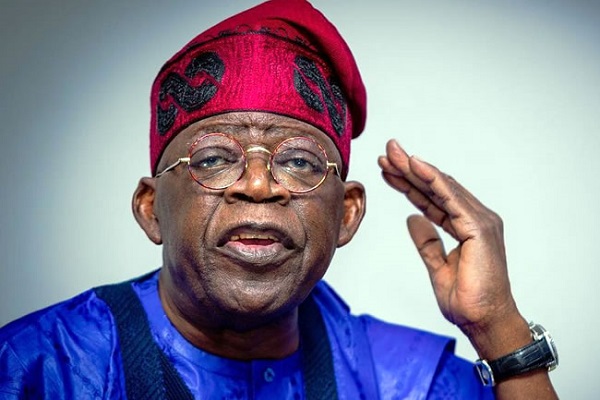Nigeria is on the right growth path with the “bold” reforms of the Tinubu Administration, the International Monetary Fund (IMF) said yesterday.
Mission Chief, Daniel Leigh, said the President moved quickly with vital changes, including ending petrol subsidy and unifying the exchange rates.
“We welcome these initial bold reforms because we see them as paving the way towards stronger and inclusive growth,” he said.
Leigh spoke at the ongoing IMF/World Bank Annual Meetings in Marrakech, Morocco during the presentation of the World Economic Outlook.
Also, the Economic Counsellor and the Director of Research of the IMF, Pierre-Olivier Gourinchas, said he was optimistic that the reforms will accelerate Nigeria’s economic growth.
But the country’s growth is projected by the Fund to slide to 2.9 per cent next year from 3.3 per cent this year, and 3.1 per cent in 2025.
But, Nigeria needs to increase domestic resource mobilisation to depend less on borrowing, Minister of Finance and Coordinating Minister of the Economy, Wale Edun said on the sidelines of the event.
IMF has reviewed sub-Saharan Africa’s growth rate downward due to what Leigh called global shocks.
He said: “There is a slight downward revision for the region as a whole.
“We are expecting growth at about 3.3 per cent this year and that’s about 0.2 percentage points downward revision.
“There is a slight downward revision for next year to about four per cent.
“We see African growth at 3.34 per cent and that is above average but it is below the potential that Africa has and it needs to catch up more quickly.”
According to him, the “shocks” include higher food and fertilizer prices due to the war in Ukraine, and a funding squeeze that has resulted in limited access to capital.
He said the global economy, however, continues to recover from the pandemic, Russia’s invasion of Ukraine and the cost-of-living crisis.
To him, the resilience has been remarkable.
Gourinchas said: “Despite war-disrupted energy and food markets and unprecedented monetary tightening to combat decades-high inflation, economic activity has slowed but not stalled.
“Even so, growth remains slow and uneven, with widening divergences. The global economy is limping along, not sprinting.”
The IMF research director said the latest projections showed that the world economic growth will slow from 3.5 per cent in 2022 to three per cent this year and 2.9 per cent next year.
The 0.1 percentage point downgrade for 2024 from July remains well below the historical average, he noted.
According to Gourinchas, headline inflation continues to decelerate, from 9.2 per cent in 2022 on a year-over-year basis, to 5.9 per cent this year and 4.8 per cent in 2024.
He stressed that fiscal buffers have been eroded in many countries, with elevated debt levels, rising funding costs, slowing growth, and an increasing mismatch between the growing demands on the state and available fiscal resources.
These, he noted, leave many countries more vulnerable to crises and demand a renewed focus on managing fiscal risks.
The IMF chief added: “Core inflation, which excludes food and energy prices, is also projected to decline, albeit more gradually, to 4.5 per cent next year.
“Most countries aren’t likely to return inflation to the target until 2025.
“As a result, projections are increasingly consistent with a soft landing scenario, bringing inflation down without a major downturn in activity, especially in the United States, where our forecast increase in unemployment is now modest, from 3.6 per cent to 3.9 per cent by 2025.”
Edun: domestic resource mobilisation key
Edun said: “The fact is that we have to depend on our resources and savings to a larger extent.
“We must be efficient in collecting taxes and fees and payments that are due; we must be more efficient and cost-effective with our expenditure and we must create a bigger base of financing from our resources.
“We must rely on ourselves and we must pull ourselves up much more than relying on others.
“I think that was an important message that came out.”
Edun said Africa demands “a bigger voice” and “a third seat” in the governance of the World Bank and IMF.
“We want greater representation at the table in which some of these decisions are taken.
“Coming back home, it’s all about what is being done and major steps are being taken to reform the tax environment,” he said.
On the need for debt reduction, the minister added: “Our focus is to increase the flow of non-debt funds.
“So, rather than borrowing, there’ll be a focus on encouraging investment, domestic and foreign.”


